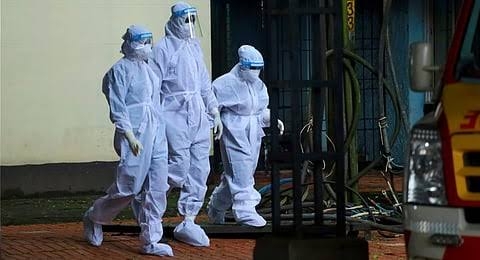New Delhi. The National Investigation Agency (NIA) on Monday filed a chargesheet against four accused in Bengaluru’s high-profile Rameswaram cafe blast case. These accused have been identified as Musavir Hussain Shajib, Abdul Mathin Ahmed Taha, Maaz Munir Ahmed and Muzammil Sharif. A chargesheet has been filed against them under the Indian Penal Code (IPC), Unlawful Activities (Prevention) Act (UAPA), Explosive Substances Act and PDLP Act.
Conspiracy of ISIS module exposed
The NIA chargesheet revealed that the ISIS South module was planning an IED attack on the BJP district headquarters in Malleswaram, Bengaluru on January 22, 2024, the day of the Ram Mandir Prana Pratishtha ceremony in Ayodhya. The mastermind behind this conspiracy was the ISIS Al-Hind module, who directed the attack from abroad under the code name Mehboob Pasha. However, when the conspiracy failed, the accused carried out the blast at Rameswaram Cafe in Bengaluru.
Shocking 🚨: Big revelation in NIA’s chargesheet on Rameswaram cafe blast
There were huge preparations on the day of ‘Pran Pratishtha’ of Ram Mandir.
There was a big conspiracy to bomb BJP offices.😳 pic.twitter.com/aADVy6ajmb
— Apurva Singh (@iSinghApurva) September 9, 2024
On March 1, 2024, nine people were injured and the hotel property was also damaged in an IED blast at Rameswaram Cafe in Brookfield, Bengaluru. The NIA started investigating the case on March 3, after which it was revealed that Musavir Hussain Shajib had planted the bomb for this blast.
Arrest of the accused and the ISIS connection
The NIA investigation revealed that Musavir Hussain Shajib and Abdul Mathin Ahmed Taha had absconded after the Al-Hind module was busted in 2020. They were later arrested in West Bengal. Both of them are residents of Shivamogga district of Karnataka and were associated with the terrorist organization ISIS. They were active in radicalizing many Muslim youths in the ideology of ISIS, including Maaz Munir Ahmed and Muzammil Sharif. Taha and Shajib used fraudulent SIM cards and bank accounts and downloaded fake Indian and Bangladeshi identity cards from the dark web. Taha took funds from his handler through cryptocurrency and converted it into fiat currency with the help of Telegram-based P2P platforms.
The NIA investigation also revealed that the accused used funds to carry out violence at several places in Bengaluru. The same funding was behind the failed IED attack on the BJP district office in Bengaluru on the day of the Ram Mandir Prana Pratishtha ceremony in Ayodhya on January 22, 2024.






